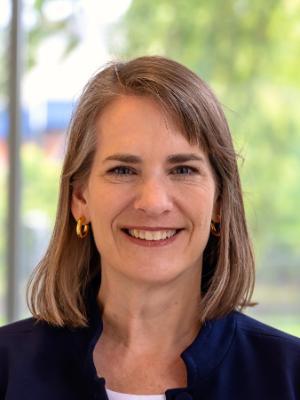October 9, 2025
The award will help Dr. Daniels complete her portion of the Network for Vocation and Undergraduate Engagement’s LIVE Project on Wheaton College’s campus.
 Daniels' subaward is a portion of the $2.1 million grant awarded for the LIVE (Longitudinal Investigation of Vocational Exploration) Project, a four-year study of how students, alumni, and faculty discover and live out their sense of calling. Partnering with 36 NetVUE colleges, the project follows two groups of students—first-years and graduating seniors—using surveys and interviews to track their growth. The project will also examine how faculty and staff utilize vocation-focused training on their campuses. The aim of the study is to understand how programs that nurture vocation and purpose shape lives during and after college.
Daniels' subaward is a portion of the $2.1 million grant awarded for the LIVE (Longitudinal Investigation of Vocational Exploration) Project, a four-year study of how students, alumni, and faculty discover and live out their sense of calling. Partnering with 36 NetVUE colleges, the project follows two groups of students—first-years and graduating seniors—using surveys and interviews to track their growth. The project will also examine how faculty and staff utilize vocation-focused training on their campuses. The aim of the study is to understand how programs that nurture vocation and purpose shape lives during and after college.
“This is going to be, as far as we can tell, the largest longitudinal study of calling over time that has ever been done due to the number of schools and students involved and the duration of the study,” Daniels said.
NetVUE, funded by Lilly Endowment, recognized a need for a large-scale study of a sample of their schools to identify what helps students as they consider their vocation. To lead this study, NetVUE reached out to Dr. Bryan Dik from Colorado State University, who invited Daniels and the University of Florida’s Dr. Ryan Duffy to support him as co-principal investigators. All three researchers have previously conducted empirical research on calling, vocation, and the integration of faith and work.
Daniels’ award will fund her work year-round, enabling her to invest more time in her research, and support student research assistants. Daniels hopes to hire four current Wheaton students each year for the duration of the study. Business economics major Savannah Jeffrey ’26 is Daniels’ first research assistant and will complete research to help inform how Daniels and her colleagues create documentation for the LIVE project—the first of its kind.
“Ultimately, our goal is to help schools figure out how they can contribute to students getting good jobs,” said Daniels. “And when I say a good job, I’m talking about a job that is meaningful and contributes to their sense of identity and to the community at large. At liberal arts colleges, we want to develop whole people, and I don’t think that’s in opposition to the idea of getting a good job. In fact, having a good job means you have a whole person who’s doing that job well.”
—Juliana Bacote